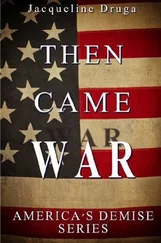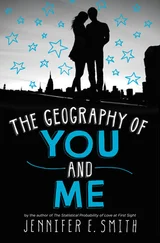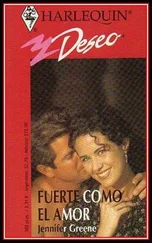I found forks and knives in a drawer, plates in a cabinet, and two juice glasses in the dishwasher. My father was concentrating hard on the pan. He’d dumped in the onions, which were cut in large, ragged chunks. He shook his head, then picked up a spatula, the end still crusted with melted cheese. I poured us small glasses of generic orange juice — as part of his disability payments, my father got food stamps, although they weren’t stamps anymore, just what looked like a regular debit card to use at the grocery store — and found paper napkins and a loaf of wheat bread for toast. I was starting to straighten up the living room when he called me in for breakfast. Feeling uncomfortable and out of place, the way I always did in his apartment, I took the seat across from him at the table. The eggs were burnt dark-brown in places, and he’d forgotten the peppers.
“It’s really good,” I told him.
My father sighed. “Ah, I’m no cook. That was your mother.”
I didn’t answer, watching as he maneuvered a bite into his mouth. If he missed us, this was as close as he’d come to saying so. An onion fell off and got stuck in his beard. “Dad,” I said quietly, pointing, and waiting until he’d used his napkin to get it out.
If you saw my father on the street, walking or sitting on the bench outside the duck pond behind his building, you wouldn’t cross the street to avoid him. Maybe you’d think that he was just a regular guy enjoying the sunshine, a man with a job and a family and a house to come home to. If you looked a little closer you’d see the thumbprints smeared on his glasses, the way one of the earpieces was mended with duct tape, the way his skin was unnaturally red and his eyes filmy. If you noticed that, maybe you would pick up your pace and try to put the sight of him out of your mind. You wouldn’t want to think about how many people like him there were out in the world, unsupervised, untethered, unloved. At least you’d want to believe they were untethered and unloved, that they didn’t have wives, or sons, or daughters, because you certainly wouldn’t want to think about that.
I put my fork down on my plate. “Hey, Dad,” I said, “if I could pay for you to go to rehab, would you go?”
He didn’t answer right away. I looked at him, his swollen face, his greasy hair. He used to be handsome. He used to wear suits on the first day of school, no matter how hot it was. He used to kiss my mother in the kitchen when he came home from work, grabbing her around the waist and lifting her briefly into the air as she laughed. He used to live in a house with three bedrooms and an above-ground swimming pool. . but I stopped those thoughts before they got too far.
He pulled off his glasses and turned them over slowly. “It’s not your job,” he finally said. “Not your job to take care of me.”
“I’m almost done with school,” I said, pulling out the pages that I’d printed and passing them across the table. Willow Crest: A Community of Care. I’d done enough research to show that the place was conveniently located and well-regarded, with a respectable success rate. The intake counselor I’d talked with the day before said that they’d have a bed available within the next three weeks. “I’ve got some money to spare. Would you go?”
He scratched his nose, forehead furrowed, then poked at the pages. After he had his accident, insurance paid for detox in a hospital, then twenty-eight days in rehab in a place up in New Hampshire. He was diagnosed with depression while he was in there, and he did okay for a while once he got out, even though he’d been suspended from his job and was on disability while the school board figured out exactly what to do. Then came the trial. “Area Teacher Sentenced for Drunk Driving Accident,” read the headline on page B-6 of the Pittsburgh Post-Gazette. My mother, who was normally a stickler about education, had let me and Greg stay home from school the day after the verdict. Greg had disappeared out the back door as soon as she’d left for work. I’d stayed in bed, not my bed but the one my parents used to share, watching game shows and talk shows and court shows, thinking it was quite possible that I would die of shame, that my mother would come home and find nothing but a girl-shaped puddle of embarrassment with, perhaps, some blond hair attached.
The school district hadn’t been able to fire him, but by the time he got out of jail, his job was gone. Downsized, they said, claiming that it had nothing to do with what had happened. I couldn’t blame them. Teachers could have a whiff of scandal in their histories — in my high school, there was a math teacher who’d left her husband for a shop instructor — but they couldn’t have hit a mother and child while driving drunk, and gone to jail for the crime.
With no job, he had no benefits. With no benefits, he couldn’t afford the hundreds of dollars of medications he took each month for the depression and anxiety they’d diagnosed in rehab, the conditions that I believed had started him drinking in the first place. Without medicine, he started drinking again, and ordering painkillers from Mexico and Canada on the Internet, and eventually moving on to the stuff you can buy on the street. One of the first times I’d visited, looking underneath the bathroom sink for more toilet paper, I’d found a crack pipe, an airline-size vodka bottle split in half with a glass pipe duct-taped into the seam. I’d dropped it like it had burned me… then I’d put it back.
I don’t make excuses. I know what he’s doing is illegal. I know that he’s a drain on taxpayers’ resources, that people who work hard at their jobs are the ones paying for his apartment and his food, for the cops who bust him and the counselors who hand him pamphlets about AA and methadone. I know that the radio talk-show shouters would hold him up as an example of everything wrong with America — how we’re entitled, how we’re weak, how instead of facing our troubles we lean on the crutches of chemicals. But he’s my father. . and I don’t believe that it’s his fault. It’s not like he’s lazy, some privileged rich kid trying to escape from some imaginary heartache or chasing some feel-good high. He takes drugs so that he can feel something close to normal, and I believe that normal is all he’s after.
“You ready?” I asked. From his apartment complex, it’s a short trip to a strip mall, with a diner and a barbershop. I walked closer to the traffic. My dad walked beside me, his gait a little unsteady, his eyes on the ground.
We went to the barbershop, where I paid for my father to get a haircut, flipping through Sports Illustrated while the barber made small talk, then sprinkled talc on the back of his neck. Back in the apartment, I straightened up some more while he made coffee and read the paper. At one-thirty I handed him the plastic bag, my haul for the month.
The shaking in his hands had gotten worse, I saw, as he opened the bag and rummaged inside, pulling out four paperback novels, a razor and a can of shaving cream, a jar of Kiehl’s moisturizer, and three bars of Dial soap, all of which I’d scavenged from campus. It was easy: my classmates were constantly leaving their buckets of toiletries in the bathrooms, their clothes in the dryer, their bookbags and backpacks everywhere. Sometimes I would slip into the boys’ bathroom and slip out with a razor and a canister of shaving cream in my bathrobe pocket, or I’d hang around the basement laundry room and wait until it was empty and I was alone with a dryer-full of men’s clothing. It wasn’t as if the boys at my school couldn’t spare a little soap or a copy of whatever book it was fashionable to tote around that semester. Because of my job, I knew who had money and who, like me, was on work-study, and I was careful to take stuff only from the ones I knew could just buy more, in the unlikely event that they even noticed what was missing. I was, I told myself, like Robin Hood, stealing from the rich and entitled and careless, giving to my father, who needed it more than they did.
Читать дальше












